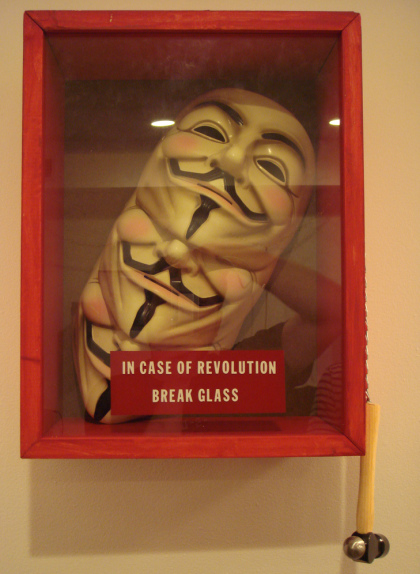Pari ilmoitusluontoista asiaa

Ensiksi. Rationaalinen tiede on itse osoittanut sosiaalisen maailman irrationaaliseksi. Ajattelu kasvaa epävakaassa maaperässä, sen alkuperä on havaintojen ja affektien epäpersoonallinen ja kaoottinen virta, tai kuten George Lakoff sanoo,
Reason is commonly assumed to be conscious; disembodied; dispassionate; literal (fits the world directly); logical (leads from facts to correct conclusions); universal; and self-interested. The cognitive and brain sciences have shown that reason really is mostly unconscious; physical (uses the brain); requires emotion; uses frames, metaphors and melodramatic narratives; varies depending on worldview; and is used at least as much in the service of empathy as of self-interest. Real reason has major political consequences. [New York Times]
Silti yhä jotkut uskovat, että maailman ongelmat johtuvat valistuksen puutteesta. Meillä on jo valistusta, sen sijaan meiltä puuttuu hyviä affekteja ja autonomiaa.
Toiseksi. Paranoidi poliittinen atmosfääri vain vahvistuu modernin jälkeisellä ajalla. Salaliittoteoriat luovat fiktiivisiä toimijoita maailmaan, josta kaikki subjektit näyttävät kadonneen. Täytyisi oppia luovimaan salaliittoteorisoinnin ja kaaosteorisoinnin välillä.
For example, people often attribute unexplained physical and psychological symptoms to the food we eat, the water we drink, an extending variety of pollutants and other substances transmitted by new technologies and other invisible processes. The American academic, Timothy Melley, has characterised this response as ‘agency panic’. He writes: ‘Agency panic is intense anxiety about an apparent loss of autonomy, the conviction that one’s actions are being controlled by someone else or that one has been “constructed” by powerful, external agents.’ (2) The perception that our behaviour and action is controlled by external agents is symptomatic of a heightened sense of fatalism, which arises from today’ s sense of diminished subjectivity. The feeling of being subject to manipulation and external control – the very stuff of conspiracy theory – springs from the contemporary perception of powerlessness.
History shows us that nothing is more frightening than when a community lacks a system of meaning through which it can understand the problems it confronts. In such circumstances, people feel powerless and confused, and are sometimes drawn towards a simplistic version of events where everything appears black or white or good and evil. That is why, for many people, the collapse of Tower Seven symbolises the workings of evil – and why NIST’s forthcoming report is unlikely to shake them out of their thinking patterns. Once you see and hear evil, and believe it exists, it is difficult to regard competing views as anything other than the work of Very Bad People.
Frank Furedi
Why facts won’t demolish the conspiracy theories
Kolmanneksi. Olen ollut jälleen sairaana. Ensi viikolla on peräti yksi työpäivä, ja ruumiini otti ennakkoa siihen nähden. Ideoita syntyy, toteutusta ei, kun viimein tullut helle paahtaa flunssan kanssa.
Neljänneksi. Oikealta löytyvä Arts & Letters -osio päivittyy jatkuvasti, vaikkei blogissa muuten muuttuisi mikään.
Lopuksi. U-S-A, U-S-A!

